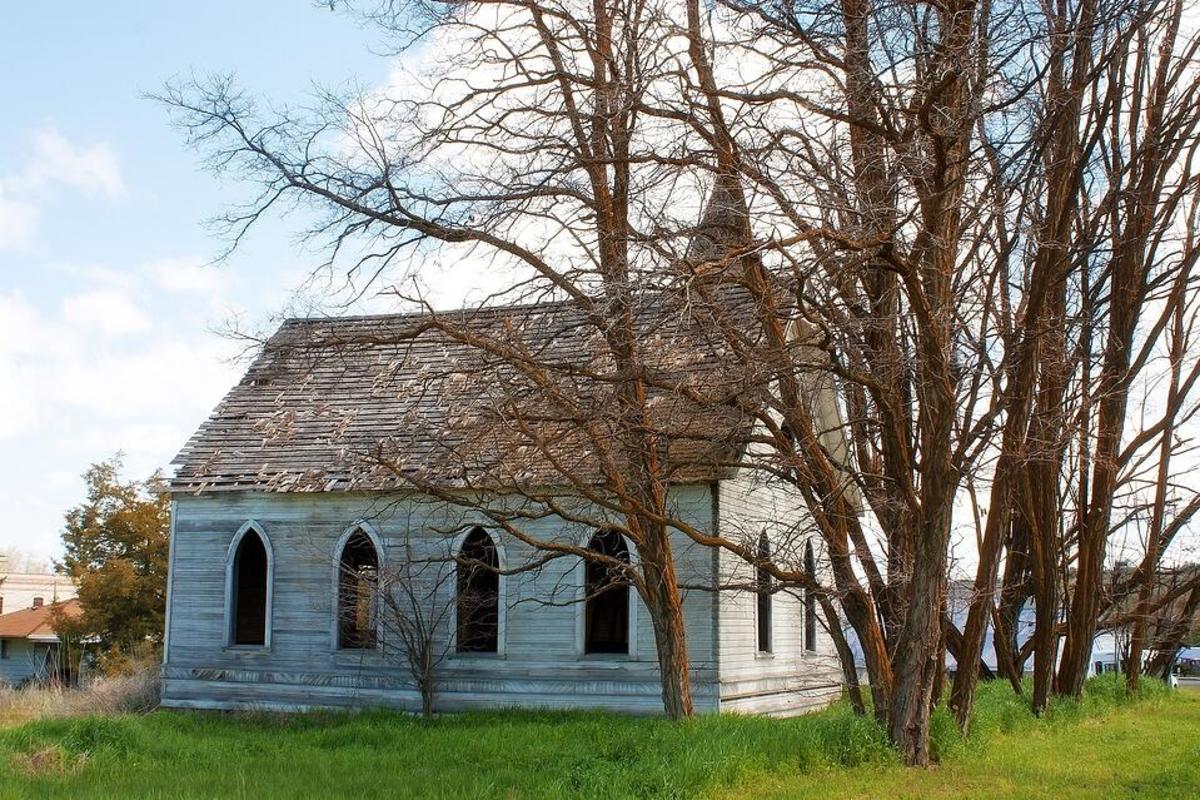7 Tips on How to Lead Church Transition and Renewal

Leading a church through transition or renewal can be one of the most difficult tasks in church pastoral ministry. This is especially true in the wake of the retirement or passing of a founding or beloved senior or teaching pastor. This hub highlights seven areas of concern an interim or transition pastor should consider when leading church transition or renewal.

An Outline for Church Transition and Renewal
Start with God as the Head and the Heart of the Transition
The whole process enveloped in prayer, prayer and more prayer with an expectant waiting on the Holy Spirit. (Acts 1, 2).
Shepherding of Staff (Staff Care)
- Just listening.
- Staff bonding through BBQ’s, play days and the like.
- Personal growth plans/ one-on-one mentoring
- Staff retreat for further bonding and spiritual renewal
- Each member identify/mentoring one apprentice.
Open the Lines of Communication between Transition Team and General Congregation
- With the help of the Elders and other key members, map out a clear list of general objectives for the interim period.
- Communicate those objectives often and report on the progress.
- Set up suggestion box.
- Hold periodic town hall meetings
- Visit care groups.
Formulate a Fresh Ministry Strategy
- Formulate new core values, philosophy of ministry, mission/vision statement
- Organize Steering Committee
- Write Masterplan for the church
- Create ownership by involving as many members and attendees as possible in the vision development process and the work of the ministry
Elder/ Leader Training
- Elder Training
- Effective Gospel Communicator Seminar
- Elder/ Leader retreat
- Elder leaders write personal growth plan
Member/ Attendee Care
- Expand care group ministry
- More intentional men’s ministry
- Create Tele-care ministry
- Continue Membership Classes
- Forgiveness/Healing Seminar (Steve Diehl)
Comprehensive Church Financial Plan
- Stewardship classes (i.e., Crown Ministries or other curriculum)
- Debt reduction plan
- Facility upgrades
- Church Budget, clear and transparent financial report

God at the Center and the Heart from the Beginning
The whole process must be enveloped in prayer, prayer and more prayer with an expectant waiting on the Holy Spirit.
In this world today we have many available resources to aide us in our growth and development. And, many of these resources contain wise and sound advice. Still, when it comes to doing God’s work, our most important guide is God and His Holy Spirit.
After Abram had returned from a successful military campaign to rescue his nephew Lot, he experienced an emotional and spiritual low. God came to him in that moment to comfort him with the words, “Do not be afraid, I am your shield and very great reward.” He then reiterated his plan to give Abram an heir and Abram believed and God counted his belief as righteousness. When the Lord is with us nothing can be against us; nothing can stop your church from fulfilling her unique purpose in the community and the world beyond.
While Moses was on the mountain of God, Aaron led the Israelite’s to erect a golden calf as the image of their god. God released Moses to lead the people without Him. At that Moses fell to his knees and pleaded with the Lord telling Him that if the Lord would not go with Moses and the people, then he, Moses, did not want to go either. Moses knew that success was in the Lord Himself.
Before Jesus began his ministry, he was led by God to be baptized by John after which he was commissioned by the Father and the Holy Spirit descended upon him to guide him in all he did on earth. If Jesus had to depend on the Holy Spirit to do the Father’s bidding, how much more do we need the same Spirit to guide us?
Before he ascended to the right hand of the Father, Jesus’ last instruction to his disciples was to wait for the outpouring of the Holy Spirit. They obeyed and waited ten days praying earnestly in the upper room until the Spirit came and filled them all with his power to be witnesses to the ends of the earth.
It is such a temptation for us today to run to man-made formulas; before your congregation does anything else you and your members must be intentional about seeking the Lord through prayer and beseeching Him to fill and guide us all with/by his Holy Spirit. This can be accomplished through (a) the organization of more prayer groups throughout the week; (b) establishing monthly days of fasting; (c) urging the existing care groups to make more time for concerted prayer; and (d) monthly concerts of prayer for the whole church body.
Staff and Elder Care
During the interim/ transition time I believe the second most important area of concentration should be staff and elder care. Perhaps, the staff and elders are beat and overwhelmed, feeling neglected disconnected and in some ways abandoned. It is crucial that the transition pastor take time to attend to the emotional and spiritual needs of other church leaders. There may be a tremendous need for spiritual and emotional healing and for a fresh vision to drive their ministries.
As it relates to the church staff, the first step for the interim is to simply be a listener. He must first be intentional about arranging many opportunities for the staff and the elders to share their hearts in safe environments where they can be vulnerable about feelings, hurts, struggles, personal issues, family issues, personal growth issues and ministry issues. I would also want to listen to their ideas about how things could be better and what they think can be done to make those things happen. This can be accomplished in formal and informal settings like staff meetings designed to go beyond mere reporting and periodic breakfast or lunch meetings. While maintaining sensitivity and integrity in gender issues (like one man not being alone with one woman), these sharing times can be organized as men only/women only groups or full staff. In this area I would also encourage the staff members to couple as prayer partners and even form as LTG’s to pray for one another and to minister to one another.
In the case of a sudden transition due to moral failure or untimely departure, it may be good to augment and further facilitate healing through counseling or seminars for emotional healing. I would include in my strategy inviting Steve Diehl to give his Forgiveness and Healing Seminar. I would invite the whole congregation (staff and attendees) to participate. Again there may be some old members who are still harboring anger and who borderline on bitterness over the events leading up to this transition. Not wanting to wallow too long in the mire of yesterday, I think the Forgiveness Seminar would help some embrace the coming opportunity ahead.
Beyond being vulnerable it would be apart of my strategy to set up retreats, play days and BBQs for the staff and their families to get to know each other better and help them bond more closely together.
I would also encourage the staff to formulate the habit of writing personal growth and ministry goals. When I took the Church Growth class at the Friends Center, I had the opportunity to do a paper on the growth of Yorba Linda Friends Church. At the time Yorba Linda Friends was fastest growing church in North Orange County, California. One of the interesting practices they had at the time was to have each staff member write personal growth goals and ministry goals. Each month the executive pastor at the time would call the staff members in to review progress on those goals. I personally believe that this is one reason the Lord chose to bless YLFC; they were willing to be accountable. I think this is an important practice and as a part of the strategy for your church you could encourage the staff to acquire this good habit.
Finally, in the area of staff, I would guide them to mentor an apprentice, to identify one or two lay people who they could train as a potential replacement, and I would urge them to do teacher trainings to train their volunteers in how to more effectively minister to the age groups to whom they currently minister. For many years mentoring and coaching has been an emphasis, but still so very few churches practice it. I believe it is the responsibility of the church leadership to train up the next generation of leaders.
Open Wide the Lines of Communication
Formulate a Strategy to Go Forward
In the summer of 2002, I had the unenviable task of having to remove a popular pastor from his position at Phnom Penh Friends Church. As hard as it was, it gave the congregation an opportunity to rethink its values and purpose. The Lord led me to invite all who cared to meet each Saturday morning to review the Bible and write new rules for eldership. Ten members of the congregation came faithfully, and worked together to brainstorm about the reason for the church’s existence and boil it down to a vision statement.
Once the ideas of all are gathered, I would encourage the elders to invite a select group of staff, elders, and other mature leaders in the congregation to boil the ideas down to a fresh set of core values, and philosophy of ministry from which to write new mission and vision statements. Out of those new statements, I would further advise them to use the Masterplanning material by Bobb Biehl to set down a new ministry strategy. (As part of the brainstorming period, I would exhort the staff, elders and leaders to visit other churches to see what the Lord is using to build those other congregations.)
Build An Infrastructure for Multiplying Leaders
Leading transition or renewal begins with the leadership in the church. This includes both staff, elders, and lay ministry leaders. To go forward you must foster an atmosphere of leadership development and delegation.
I would follow up with the elders in much the same way as I would follow up with the staff. I would begin by listening. I would set up frequent opportunities to meet together one-on-one and in groups to hear their hearts, to foster openness and vulnerability and seek their insights. Through listening I would lead them to identify areas of need and find the relevant resource materials to help them better understand their roles and have the necessary skills to fulfill those roles.
Like the staff, I would encourage the elders and their families to get out and play together. And I would organize opportunities for the elders and the staff to interact and build relationships of trust with one another.
It is my personal desire to see every church become an equipping and sending center. Along those lines I would like to help the leaders of the church enhance their abilities to share the gospel in clear and creative ways. To this end I would suggest the creation of a Gospel Communicator’s workshop utilizing some materials my wife and I picked up while in Cambodia that has helped us in our ability to present the gospel to others. I have encountered Christian brothers and sisters who hem and haw when placed on stage, but can tell engaging stories in a circle of close friends. They only need some one to draw them out and teach them how to develop testimonies and sermonettes. If you can teach these people to use their hidden talents and/or gifts from the Lord to share gospel stories in a meaningful way, they can help multiply your ministry exponentially.

Design a Follow Up Plan to Reach the Rest of the Congregation
A plan of transition and or renewal must include a strategy to reach out to members of the congregation itself. Focusing on the welfare of the staff and the elders will relieve their hearts so they can in turn minister to the people. But, as it pertains to the members and attendees of the church, a good strategy would include (a) expansion of the care group ministry by recruiting new host houses and leaders; (b) the creation of a tele-care/email ministry; (c) the continuation of the membership classes to recruit new members; and (e) a strong emphasis on building the men’s ministry. I believe the care groups and men’s ministries in particular are in need of serious attention. The importance of men's ministry cannot be overemphasized. Two of the larger churches of which I am aware were built on a foundation of men's ministry. They saw that if you get a child or mother to church you might get some other family members. But, if you get dad, it is likely you will get the most or all members of the family.
Comprehensive Financial Plan
Last but certainly not least is a comprehensive financial plan. The problem here is that many congregations in the midst of transition look at this piece before all others. The Lord must come first and then the money.
A comprehensive financial plan. The church is not just a ministry; it is also a business. During the interim time the church needs to take a long look at its budget and its spending habits to define a budget that will keep the church running in the black and will allow it to build towards the future.
The interim or transition plan should include the development of stewardship classes like Crown Ministries or other curriculum, a debt reduction plan, and a plan for properly maintaining the grounds and buildings, and making appropriate and timely facility upgrades.
On a personal note, I believe churches should avoid debt and operate on 60 to 70% of their income. The church should tithe the first 10% to global missions. If the people should tithe to support the local congregation, the church should do the same. The second 10% should go towards saving for future facility upgrades or new staff members as the need arises. A third 10% should go towards planting new churches in surrounding communities. The fourth 5 or 10% could set aside for aiding the poor and needy in the neighborhood.
This is proposed with a servant’s heart to serve the Lord and his church as he sees best. The Lord bless West Community Friends Church to be an instrument of honorable use until the Lord returns to reign forever and ever.








